A social media post claiming that Nobel Laureate Luc Montagnier has said that ‘all those got vaccinated will die in 2 years’ is being widely shared across platforms. We have also received the same query on our WhatsApp tip line. Through this article, let’s fact-check the claim made in the post.
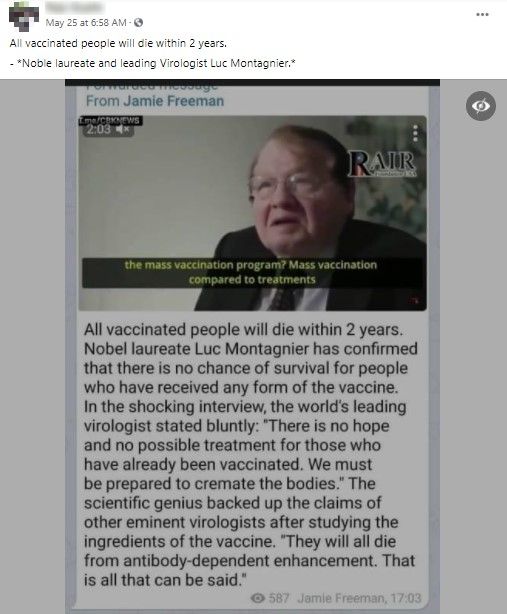
Claim: ‘All vaccinated people will die in 2 years; Vaccines create more variants; Vaccination leads to more deaths – Luc Montagnier’
Fact: Luc Montagnier expressed concerns about mass vaccinations in a recent interview. However, he did not claim that all vaccinated people will die in 2 years. Also, there is not enough scientific data to show vaccination leads to more deaths. Further, vaccination contains the spread of virus and mutation. Hence the claim made in the post is FALSE.
Dr. Luc Montagnier’s interview was published by the US-based RAIR foundation. However, in this interview, Montagnier nowhere claims that ‘all vaccinated people will die in two years’. In fact, RAIR foundation through a tweet clarified the same.
However, in this interview, Montagnier opined that vaccines are creating new variants and he mentioned about a phenomenon called antibody-dependent enhancement (ADE) in support of his argument. He also claimed that vaccination would lead to more deaths.
Does Vaccine create new variants?
ADE (Antibody-Dependent Enhancement) is a phenomenon wherein the antibodies generated during an immune response fail to prevent infection and instead, the pathogen (virus) binds to these antibodies which act as a vehicle allowing the pathogen to get into cells which they could not previously and exacerbate the immune response.
There have been instances of ADE reported earlier in cases related to human immunodeficiency virus (HIV), Ebola, influenza, and flaviviruses. However, the relevance of ADE for coronaviruses remains unclear and there is not enough data to substantiate its effect as far as coronavirus is concerned.
As per WHO, ‘viruses constantly evolve over time by replicating themselves or sometimes it changes itself a little bit. These changes are called mutations. A virus with one or more new mutations is referred to as a “variant” of the original virus’, and this a random process.
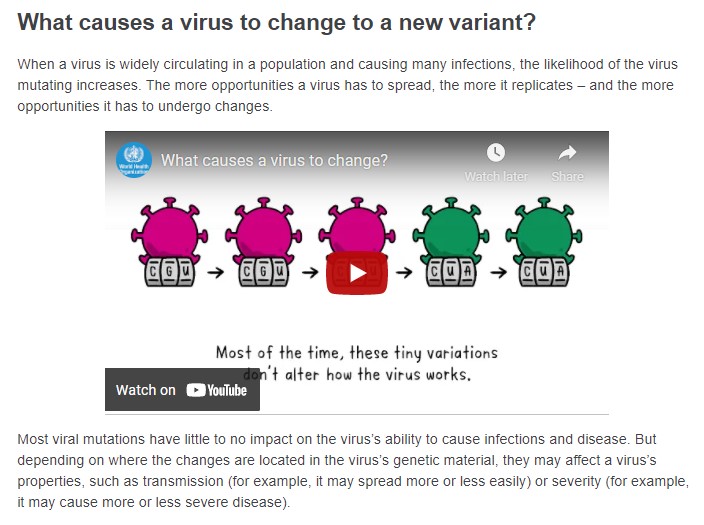
As per experts, most viral mutations have little to no impact on the virus’s ability to cause infections and disease. But depending on where the changes are located in the virus’s genetic material, they may affect a virus’s properties, such as transmission (for example, it may spread more or less easily) or severity (for example, it may cause more or less severe disease).
Generally, when a virus widely circulates amongst the population causing infections, the likelihood of the virus mutating increases. The more the virus spreads, the more it replicates. In this case, the spread of the virus could be contained either by achieving herd immunity (wherein a large portion of a community (60-70%) becomes immune to a disease making the spread of disease from person to person unlikely) or by vaccinating as many people as possible.
WHO says ‘scaling up vaccine manufacturing and rolling out vaccines as quickly and widely as possible will also be critical ways of protecting people before they are exposed to the virus and the risk of new variants.’
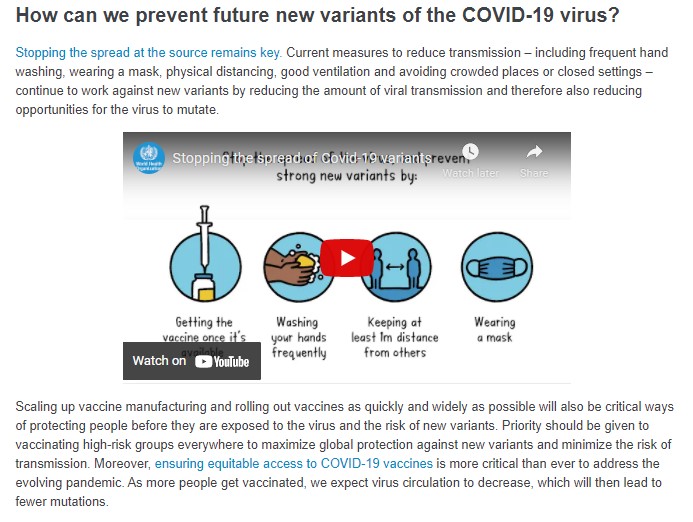
Does Vaccination lead to more deaths?
As far as efficiency of vaccination is concerned, WHO states that the COVID-19 vaccines that are currently in development or have been approved are expected to provide at least some protection against new virus variants because these vaccines elicit a broad immune response involving a range of antibodies and cells. Therefore, changes or mutations in the virus should not make vaccines completely ineffective. In the event that any of these vaccines prove to be less effective against one or more variants, it will be possible to change the structure of the vaccines to protect against these variants. For example, structure of the vaccine for the influenza virus changes regularly based on the circulating strain. Also, administration of a booster dose according to the composition of the variant is also a possible way to contend the spread.
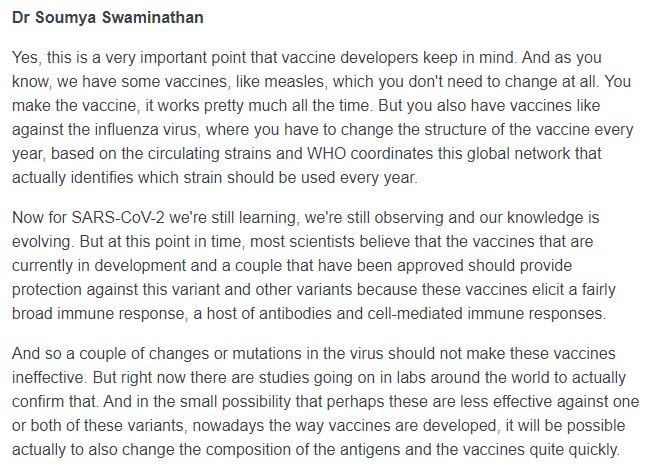
Even studies by the CDC suggest that the current authorized vaccines work on the circulating variants. And a growing body of evidence suggests that fully vaccinated people are less likely to have asymptomatic infection and potentially less likely to transmit SARS-CoV-2 to others. The vaccines also seem to work on most variants that are in circulation in the US like B.1.1.7, B.1.351 & P.1.
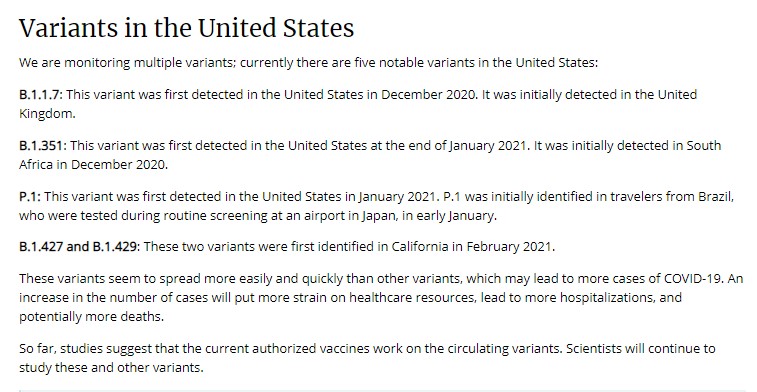
Although there have been instances of breakthrough cases of deaths due to adverse events even after taking the vaccine, these numbers are very less compared to the scale of vaccination. For example, over 285 million doses of COVID-19 vaccines were administered in the United States from 14 December 2020, through 24 May 2021. During this time, VAERS (Vaccine Adverse Event Reporting System) received 4,863 reports of death (0.0017%) among people who received a COVID-19 vaccine. This implies odds of dying after taking the vaccine are very low.
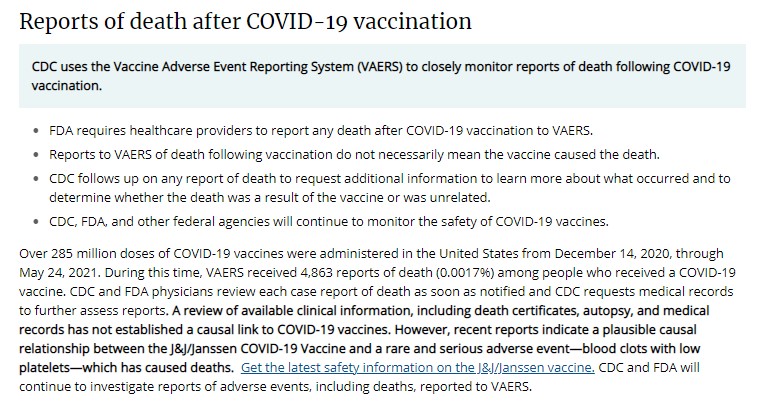
From this analysis, we can infer that rolling out vaccines as quickly and widely as possible protects people from the virus and contains the risk of new variants. In fact, well-known Indian virologist and member of the National Technical Advisory Group on Immunisation, Dr. Gagandeep Kang through a tweet shared similar views regarding Montagnier’s claims.
Luc Montagnier controversies:
Luc Montagnier was the joint recipient of the 2008 Nobel Prize in Physiology or Medicine for his discovery of the human immunodeficiency virus (HIV).
Earlier in 2012, Montagnier was in news as he participated in a conference conducted by Autism One, a group that is against vaccination. This group is known to propagate the theory that vaccination causes autism among children.
Hence, Luc Montagnier in this particular interview has indeed expressed concerns over vaccination. However, he did not say that all those who got vaccinated would die in two years. Also, as of now, there is not enough scientific evidence about the seriousness of ‘Antibody-Dependent Enhancement ‘for coronavirus vaccines.
To sum it up, Luc Montagnier did not claim that vaccinated people will die in 2 years and there is no scientific evidence to correlate vaccination with more deaths.


